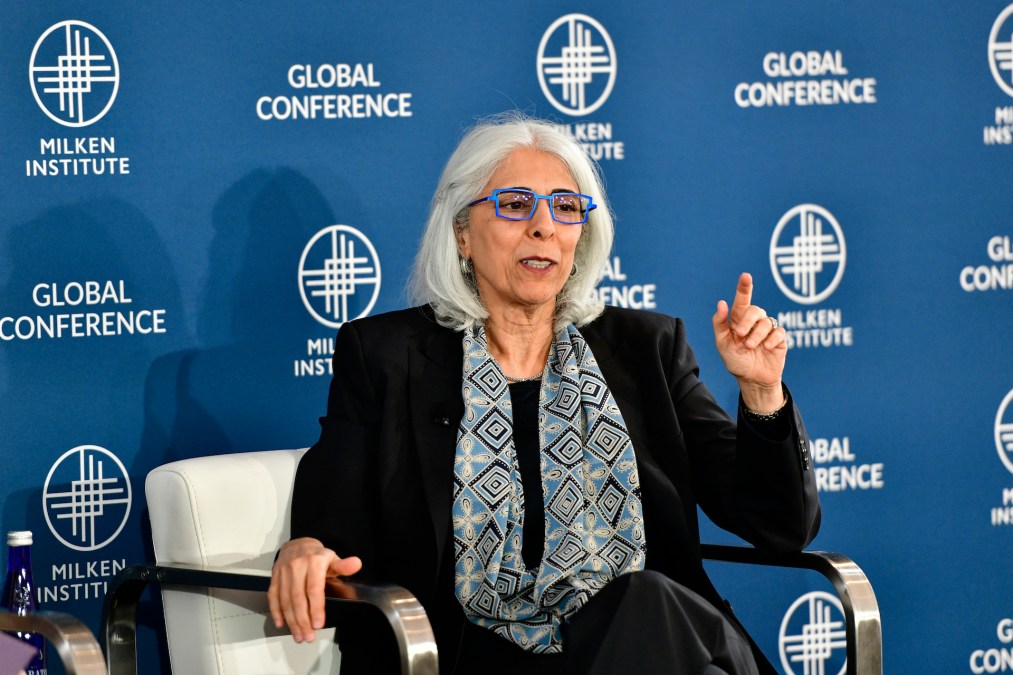OSTP director renews calls for more NAIRR, AI R&D funding

Addressing artificial intelligence problems within research and development will cost the United States tens of billions of dollars and a stronger commitment from the federal government, the White House’s top science adviser said Monday.
Speaking at a Washington AI Network and Global Win event, Office of Science and Technology Policy Director Arati Prabhakar said the $32 billion annual figure for non-defense AI R&D floated by the National Security Commission on AI and the Senate’s bipartisan AI working group is “exactly the level at which we need to be tackling these problems.”
Prabhakar pointed specifically to the importance of authorizing and appropriating the National AI Research Resource and said there is movement from legislators to sign off on “$2.6 billion over six years.” Prabhakar said that the funding level would be “so much better” than the $30 million currently appropriated to the National Science Foundation for the NAIRR pilot.
“Let’s recognize that NAIRR needs to not only get authorized, but appropriated, but then we need to do a lot more,” Prabhakar said. “That’s just table stakes, that’s just compute and data infrastructure. We need another layer that is a broad, deep foundation of basic research to support AI technology broadly for all applications. … Research across a broad swath of AI capabilities is important.”
The OSTP director said there is also some “real work” to do on the government’s part to make sure that it is playing a leading role in America’s innovation and future.
“A big part of that, in my view, is about seizing these AI opportunities,” Prabhakar said. “That’s going to need to get done through regular appropriations, through whatever other mechanisms we can find. Because if we don’t seize this moment, there’s no other country around the world that is sitting on its hands and waiting.”
Prabhakar once again publicly addressed the need for appropriate R&D funding and said the nation is not resourcing R&D projects that would have a significant public impact, such as advances in health care leading to condensed timelines for designing medication.
“We need application layers for every public mission that requires AI,” Prabhakar said. “If we’re going to design drugs and have the [Food and Drug Administration] be able to approve them a hundred times faster than what we’re doing today, which actually could be possible, that’s going to take deep research investment, deep partnership with industry to build that out, and obviously deep partnership with the FDA.”






